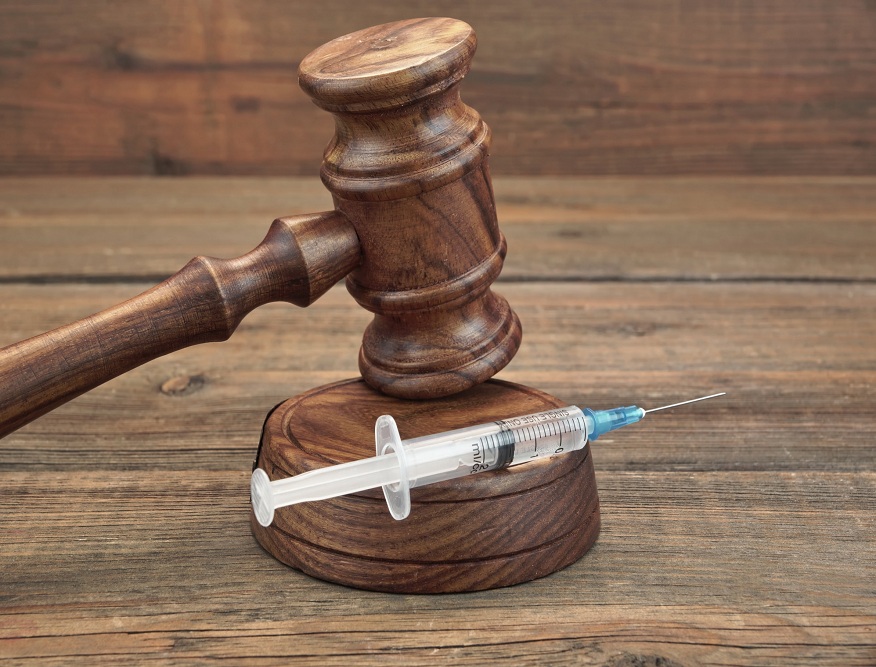The virus can cause various types of cancer, including cervical, anal, and throat cancers. HPV vaccination is a crucial step in preventing these cancers, but it is not without risks. This article will discuss the risks and symptoms of HPV vaccination, including the possible link to intussusception rotavirus.
Understanding HPV Vaccination
HPV vaccination is recommended for both males and females to prevent the transmission of the virus. There are three HPV vaccines currently available, including Gardasil, Gardasil 9, and Cervarix. These vaccines are recommended for people between the ages of 9 and 45.
The HPV vaccine is given in a series of two or three shots, depending on the age of the recipient. The vaccine is most effective when given before exposure to the virus, which is why it is recommended for young people.
Possible Risks of HPV Vaccination
Like any vaccine, HPV vaccination can cause side effects. The most common side effects include pain and swelling at the injection site, fever, and headache.
However, there are some more serious risks associated with HPV vaccination. These include:
- Allergic reactions: Some people may be allergic to one or more of the components of the vaccine, which can cause a severe allergic reaction. Symptoms of an allergic reaction may include difficulty breathing, hives, and swelling of the face, lips, tongue, or throat.
- Blood clotting disorders: There have been reports of blood clotting disorders, such as deep vein thrombosis and pulmonary embolism, after HPV vaccination. These reports are rare, but they have been documented.
- Intussusception Rotavirus: There has been some concern about a possible link between HPV vaccination and intussusception rotavirus. Rotavirus is a common childhood illness that can cause diarrhea and vomiting. There is some evidence to suggest that HPV vaccination may increase the risk of intussusception in children who have previously had rotavirus.
Symptoms of HPV Injury
In rare cases, HPV vaccination can cause injury. The symptoms of HPV injury may include:
- Fainting: Some people may faint after receiving the HPV vaccine. This is most common in adolescents and young adults. Fainting can be dangerous if the person falls and injures themselves.
- Seizures: There have been reports of seizures after HPV vaccination. However, the risk is extremely low.
- Chronic pain: Some people have reported chronic pain after receiving the HPV vaccine. This pain may be in the arm where the vaccine was given or in other parts of the body.
- Guillain-Barré syndrome: There have been reports of Guillain-Barré syndrome after HPV vaccination. This is a rare condition that causes muscle weakness and paralysis.
- Intussusception: As mentioned earlier, there is some evidence to suggest that HPV vaccination may increase the risk of intussusception in children who have previously had rotavirus.
How to Reduce the Risks of HPV Vaccination
There are some steps you can take to reduce the risks of HPV vaccination. These include:
- Inform your healthcare provider if you or your child has had an allergic reaction to any vaccine or medication in the past.
- Inform your healthcare provider if you or your child has a bleeding disorder or is taking blood-thinning medication.
- Stay at the healthcare provider’s office for at least 15 minutes after receiving the vaccine to monitor for any adverse reactions.
- Report any adverse reactions to the vaccine to the Vaccine Adverse Event Reporting System (VAERS) or your country’s equivalent.
The Importance of HPV Vaccination
HPV vaccination is important because it can prevent the transmission of HPV and the development of associated cancers. HPV is a common virus that can affect both men and women. In fact, about 80% of people will have an HPV infection at some point in their lives. While most HPV infections go away on their own, some can lead to cancer. HPV vaccination can prevent these cancers from developing.
In addition, HPV vaccination can also help prevent the spread of the virus. When more people are vaccinated against HPV, it becomes harder for the virus to spread from person to person. This is called herd immunity and is an important factor in preventing the transmission of infectious diseases.
Conclusion
HPV vaccination is a crucial step in preventing the transmission of HPV and the development of associated cancers. While the risks associated with HPV vaccination are generally low, it is important to be aware of them. If you or your child experiences any of the symptoms of HPV injury, seek medical attention immediately.
It is important to weigh the risks and benefits of HPV vaccination. The benefits of HPV vaccination, including the prevention of cancer, outweigh the risks for most people. If you or a loved one has suffered an adverse reaction to the HPV vaccine, Vaccine Law is here to help. Our team of experienced vaccine attorneys can help you navigate the National Vaccine Injury Compensation Program and obtain the compensation you deserve.




